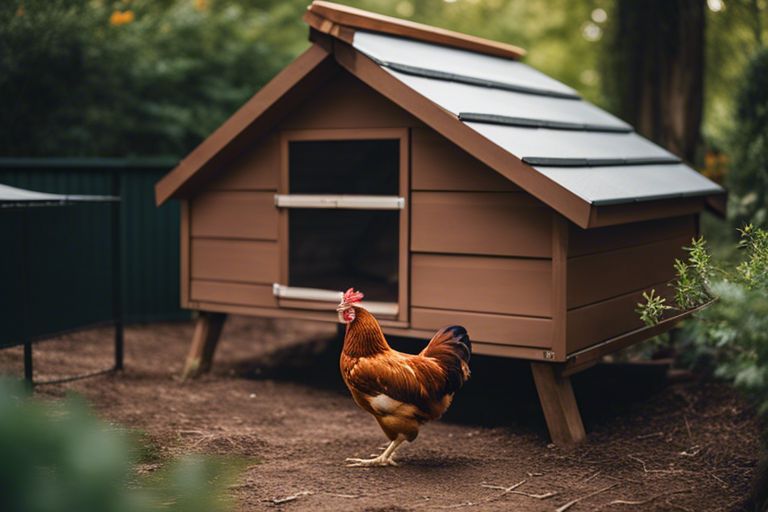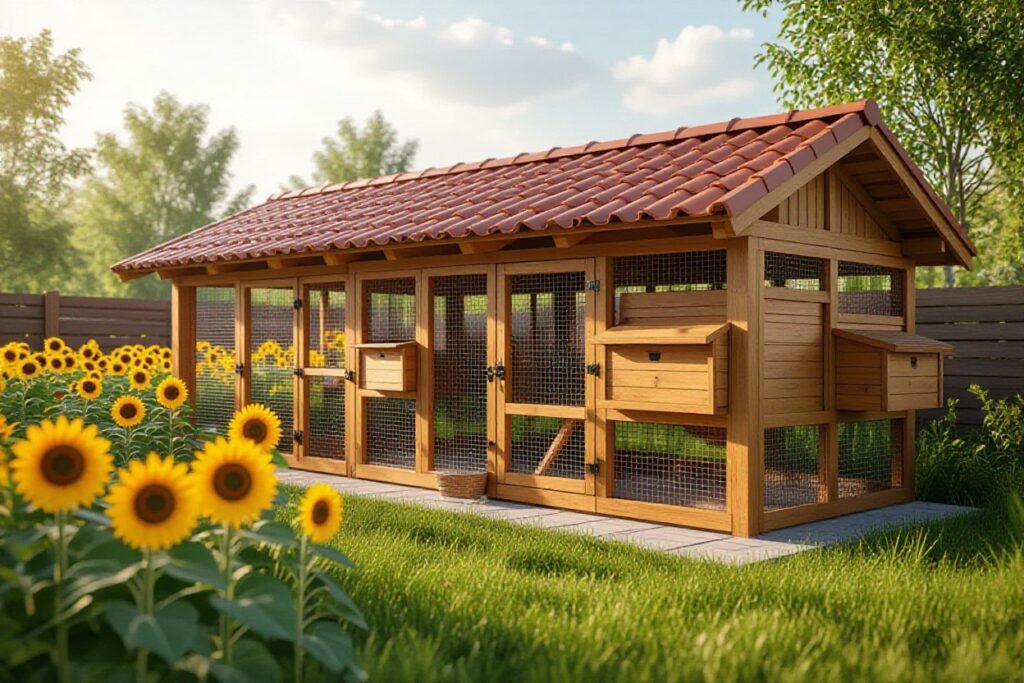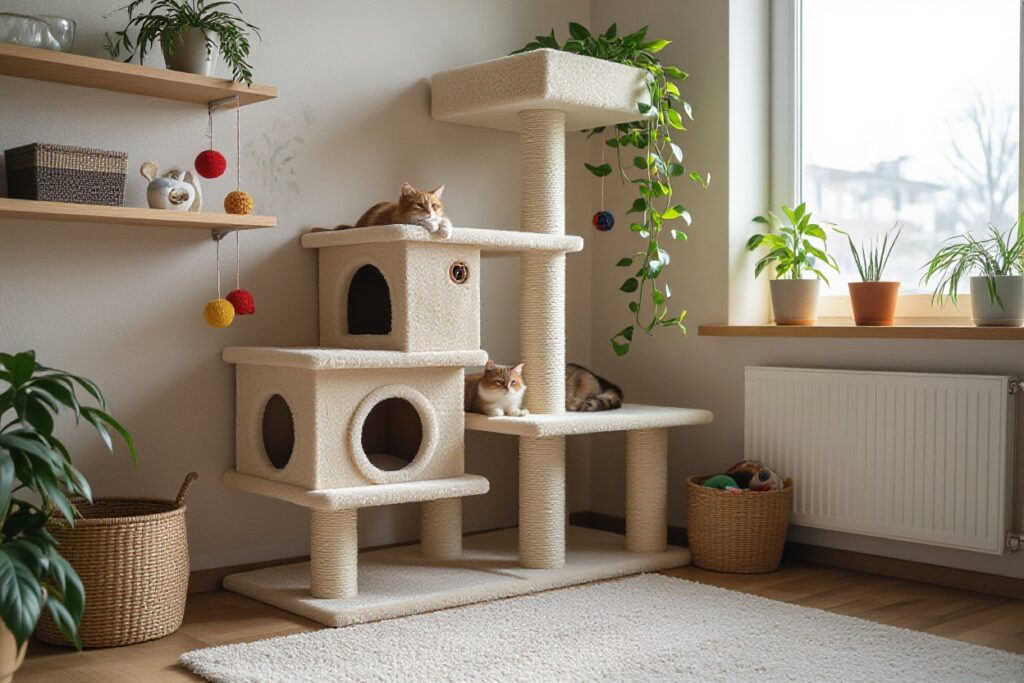Predator-Proof your chicken coop with these vital tips to ensure the safety and well-being of your feathered friends. From securing entrances to implementing motion sensor lights, we’ll guide you through the steps to fortify your coop against potential threats. Learn how to design a predator-resistant environment that will keep your chickens safe and secure, allowing you to enjoy peace of mind while they roam freely in their protected space.
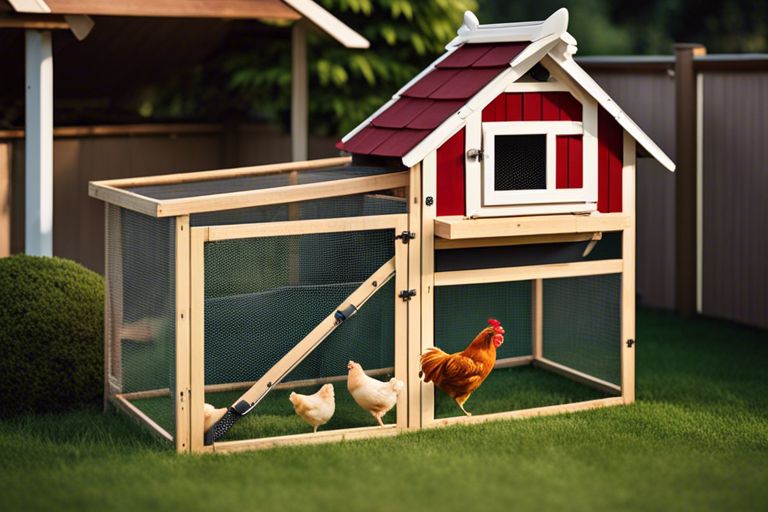
Design Fundamentals
Location and Environment
On the quest to build a safe and predator-proof chicken coop, the first step is choosing the right location and assessing the environment. Select a spot that is well-drained, away from potential flood zones, and with good ventilation. Consider the prevailing winds, sunlight exposure, and proximity to sources of water and power.
Structural Considerations for Safety
Designing a structurally sound coop is crucial for the safety and security of your flock. Ensure the coop is built with sturdy materials that can withstand harsh weather conditions and potential attacks from predators. Install a strong perimeter fencing to keep predators at bay, and incorporate predator-proof features like hardware cloth and latches.
This section focuses on imperative structural considerations to fortify your coop, protecting your chickens from harm.
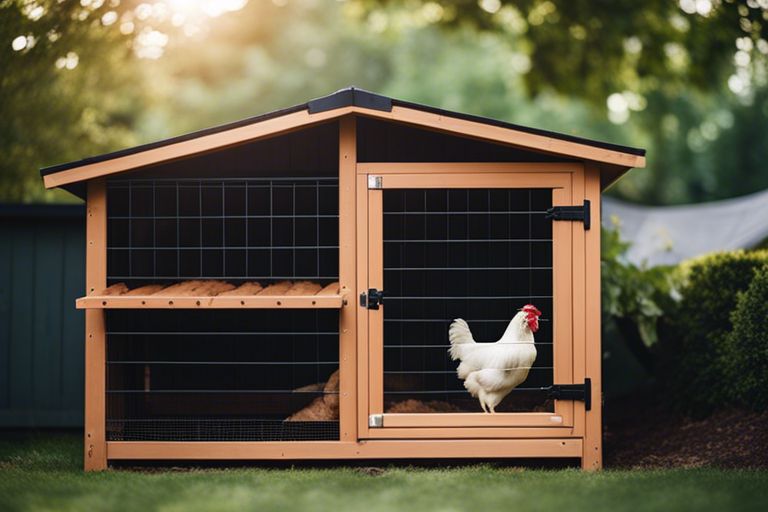
Building the Coop
Choosing Durable Materials
An important aspect of constructing a safe and predator-proof chicken coop is selecting durable materials. Opting for sturdy materials such as pressure-treated lumber or metal roofing can help ensure the longevity and security of your coop. These materials are less susceptible to weather damage and can withstand potential attacks from predators, keeping your chickens safe and sound.
Incorporating Predator Deterrents
Predator deterrence is crucial in safeguarding your chickens from potential threats. Implementing features like hardware cloth for windows, locking mechanisms on doors, and underground wire mesh can effectively deter predators such as raccoons, foxes, and even birds of prey. These added precautions can significantly reduce the risk of predators infiltrating your coop and harming your flock.
The inclusion of predator deterrents does not guarantee absolute protection, but it serves as a proactive measure to minimize the risks posed by predators. By incorporating these deterrents into the design of your chicken coop, you are taking significant steps towards creating a secure and predator-proof environment for your chickens.
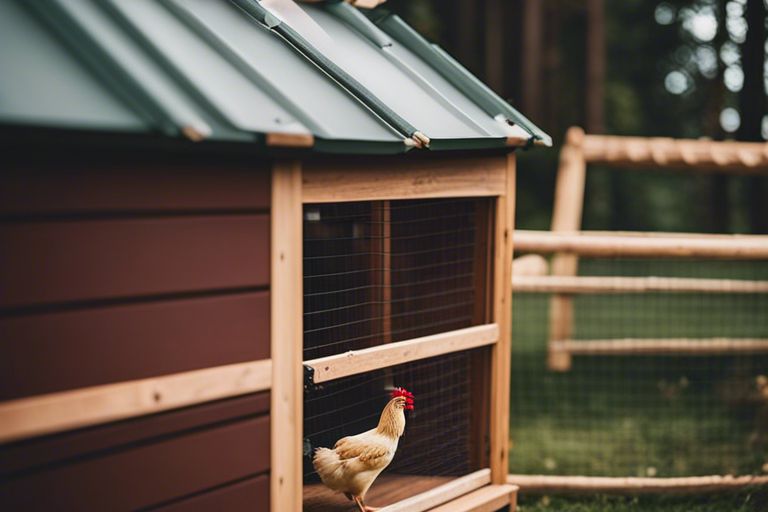
Additional Security Measures
Fencing Options and Strategies
Many chicken owners swear by using a combination of hardware cloth and electric fencing to keep predators at bay. Hardware cloth is a sturdy wire mesh that can be buried around the perimeter of the coop to deter digging predators, while electric fencing can shock any predator attempting to breach the enclosure. Regularly inspect the fencing for any signs of damage or weakness to ensure its effectiveness.
Technology and Monitoring Solutions
Any modern chicken coop can benefit from the integration of technology and monitoring solutions. Automatic coop doors can be programmed to open and close at set times, keeping your chickens safe inside at night. Motion-activated lights and cameras can also help deter predators and provide real-time monitoring of any suspicious activity around the coop.
For optimal security, invest in a high-quality wireless security camera system that allows you to remotely access live footage of your coop. Some systems even offer alerts and notifications in case of unusual activity, giving you peace of mind even when you’re away from home.
Another effective technology to consider is predator deterrent systems like motion-activated sprinklers or noise devices. These can startle and deter predators from approaching the coop, providing an added layer of protection for your feathered friends.
Maintenance and Vigilance
Routine Checks and Upkeep
Maintenance is key in keeping your chicken coop safe and predator-proof. Regularly check the coop for any signs of wear and tear, such as loose wires, holes in the fencing, or rotted wood. Keep the coop clean and dry to prevent the buildup of bacteria and pests. By staying on top of routine maintenance, you can prevent potential risks to your flock.
Recognizing and Responding to Threats
To safeguard your chickens, it’s crucial to be vigilant in recognizing and responding to threats. Familiarize yourself with the common predators in your area and their behaviors. Install motion-activated lights or alarms to deter predators. In case of an attack, have a plan in place to quickly intervene and protect your chickens.
Routine checks and upkeep are crucial in ensuring the safety and security of your flock. Regularly inspect the coop for any vulnerabilities and address them promptly. Keep an eye out for any signs of predators in the vicinity and take immediate action to protect your chickens. By staying proactive and vigilant, you can create a safe and predator-proof environment for your feathered friends.
Final Words
Taking this into account, ensuring the safety and security of your chickens should be a top priority when designing and building their coop. By following the steps outlined in this guide to create a safe and predator-proof chicken coop, you can significantly reduce the risk of harm to your flock. Remember to regularly inspect and maintain your coop to address any weak points or potential entryways for predators. With proper planning and attention to detail, you can provide your chickens with a comfortable and secure environment for them to thrive in.
FAQ
Q: Why is it important to have a safe and predator-proof chicken coop?
A: Having a safe and predator-proof chicken coop is crucial to protect your feathered friends from potential harm. Predators such as foxes, raccoons, and birds of prey pose a constant threat to your chickens, so ensuring their safety is paramount.
Q: How can I predator-proof my chicken coop?
A: To predator-proof your chicken coop, make sure it is constructed with sturdy materials such as hardware cloth, bury wire mesh around the perimeter to prevent burrowing animals, and secure all openings with locks and latches.
Q: What are some common predators that target chickens?
A: Common predators that target chickens include foxes, raccoons, snakes, birds of prey (such as hawks and owls), weasels, and even domestic dogs and cats.
Q: How can I secure the coop from aerial predators?
A: To secure the coop from aerial predators, cover the outdoor run with wire mesh or netting to prevent birds of prey from swooping down and grabbing your chickens. Also, provide ample overhead cover for your chickens to seek shelter.
Q: Should I install security cameras around the chicken coop?
A: Installing security cameras around the chicken coop can be a good idea to monitor any suspicious activity and keep an eye on potential predators. It can help you take immediate action if a threat is detected.
Q: How can I make the chicken coop more secure at night?
A: To make the chicken coop more secure at night, make sure all doors and windows are securely locked, install motion-activated lights to deter nocturnal predators, and consider using a predator-resistant coop design.
Q: What should I do if a predator attacks my chickens?
A: If a predator attacks your chickens, immediately remove the injured birds from the coop and provide first aid if needed. Secure the coop further to prevent future attacks, and consider contacting local wildlife authorities for guidance on dealing with the predator.
